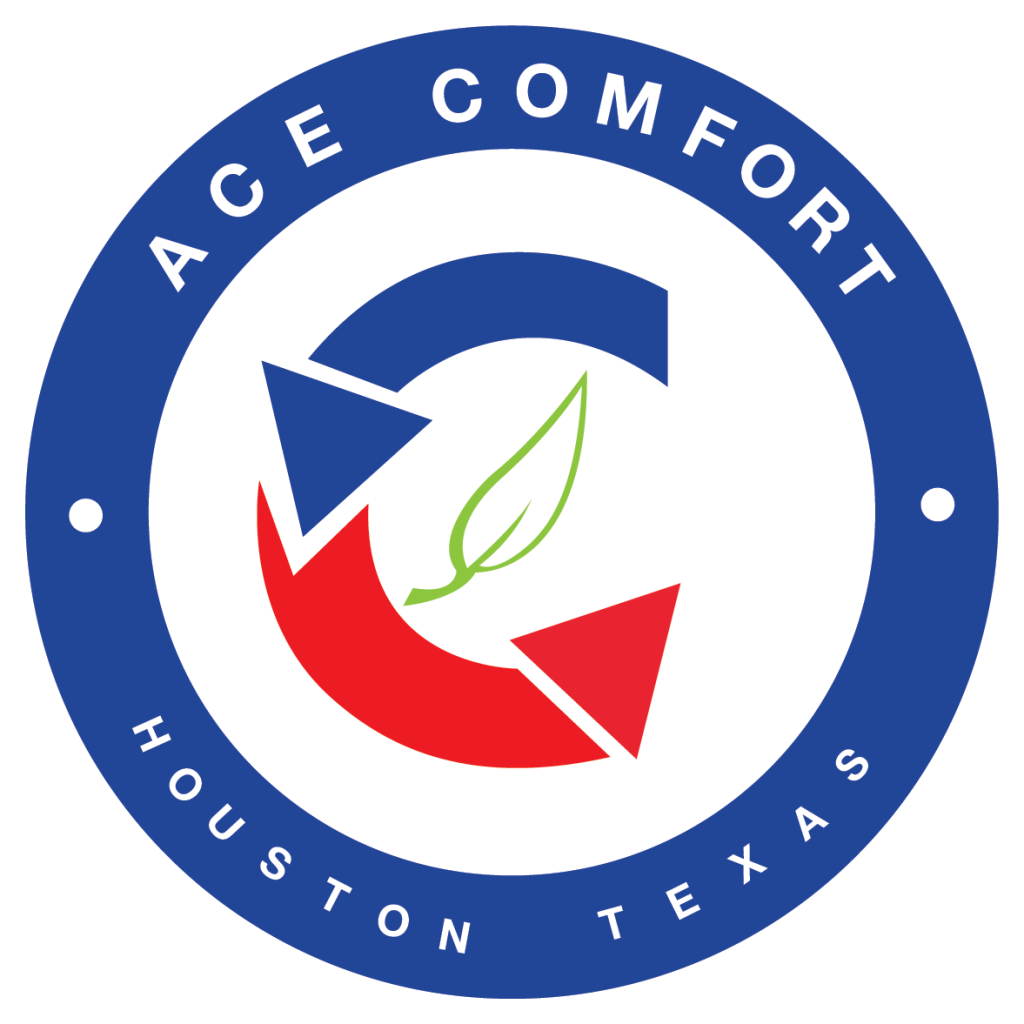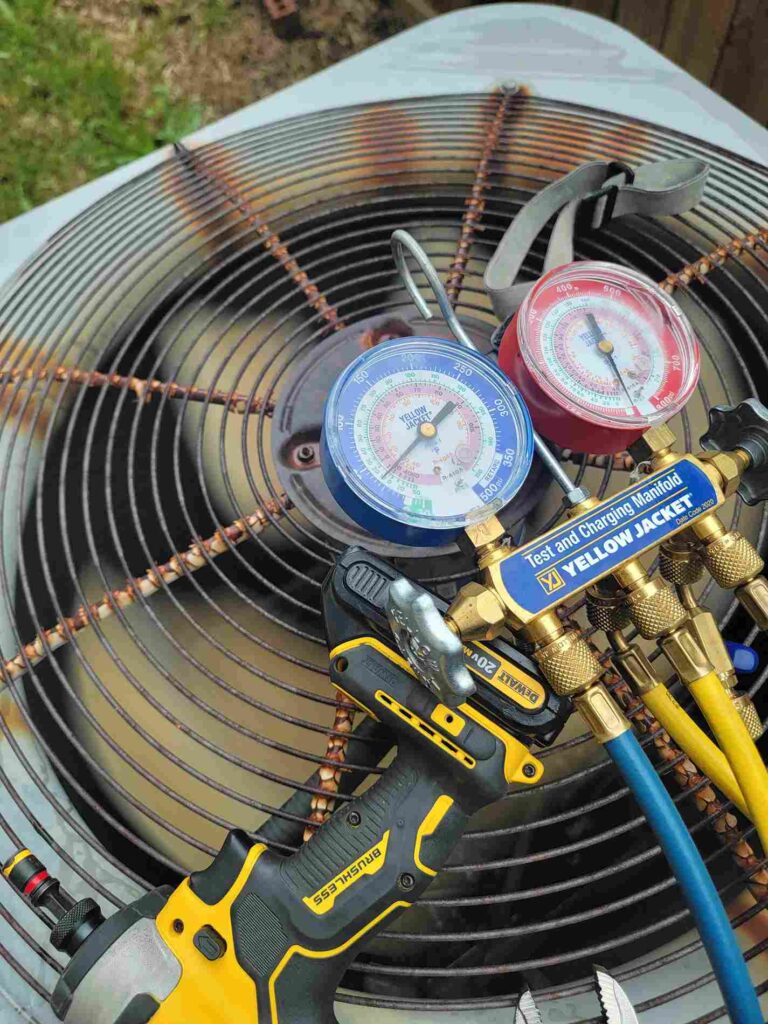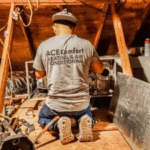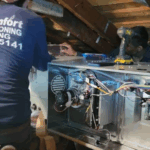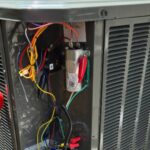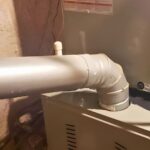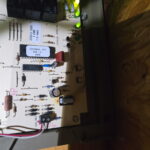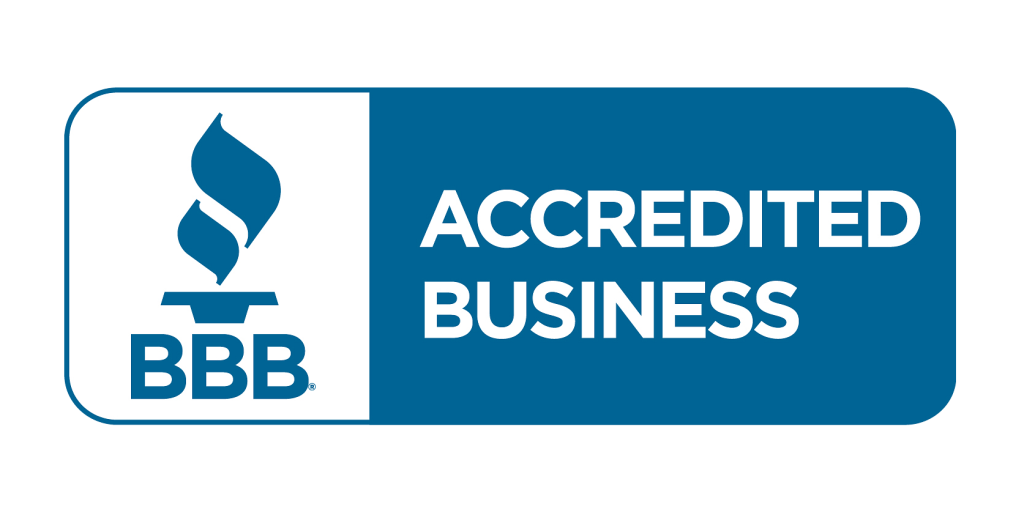The scorching Houston summer arrives with an undeniable intensity, making a properly functioning air conditioning system not just a luxury, but an absolute necessity. When the mercury climbs, and your AC unit struggles to keep your indoor sanctuary cool, it’s more than just an inconvenience – it’s a disruption to your comfort and well-being. The feeling of warm air blowing from your vents, or a system that simply won’t kick on, can induce a quick sense of panic for any Houston homeowner. Understanding the common culprits behind a failing AC can empower you to take the right steps, transforming that frustrating situation into a swiftly resolved one. This comprehensive guide delves into five primary reasons your AC might not be cooling effectively during the relentless Houston heat and provides actionable advice on what to do when your central air conditioning falters.
The Houston Heatwave Strikes: When Your AC Just Can’t Keep Up
Houston’s climate is notorious for its sweltering humidity and soaring temperatures, often reaching triple digits. Your air conditioning system works tirelessly to combat this oppressive heat, acting as your home’s primary defense against discomfort. When it fails, the effects are immediate and unwelcome. The good news is that many AC issues are identifiable, and professional HVAC technicians possess the expertise to diagnose and perform necessary repairs. Let’s explore some of the most frequent reasons your AC might be struggling to deliver that sweet, cool relief.
1. The Choked Airflow Conundrum: Dirty Air Filters
One of the most common, yet frequently overlooked, reasons for an AC not cooling properly is a clogged air filter. Think of your air filter as the lungs of your HVAC system. Its purpose is to trap dust, pollen, pet dander, and other airborne particulates, preventing them from circulating throughout your home and, more importantly, from accumulating on the sensitive components of your air conditioner.
Over time, this filter becomes saturated with debris, impeding the flow of air. When airflow is restricted, your AC unit has to work significantly harder to pull air through the system, reducing its efficiency and cooling capacity. You might notice weaker airflow from your vents, or your unit running almost constantly without achieving the desired temperature. This increased strain on the system can lead to higher energy bills and, if left unaddressed, can cause other components to fail prematurely.
What to Do: The solution here is straightforward: regularly inspect and replace your air filter. In Houston, especially during peak cooling season, checking your filter monthly is highly recommended. If it appears dirty or discolored, replace it with a clean one. This simple maintenance task can dramatically improve your AC’s performance and longevity, ensuring optimal indoor air quality and consistent cooling.
2. The Frozen Coils Fiasco: Ice Buildup on the Evaporator
Imagine a block of ice forming where cool air should be flowing – that’s essentially what happens when your evaporator coils freeze. The evaporator coil, located inside your indoor unit (often in your attic or a utility closet), is responsible for absorbing heat and humidity from your home’s air. When airflow is restricted (due to a dirty filter, blocked return vents, or issues with the blower motor), or if there’s a refrigerant leak, the coils can get too cold and accumulate ice.
A frozen evaporator coil acts as an insulator, preventing the coil from absorbing heat effectively. This means that even if your AC is running, it won’t be able to cool your home. You might observe water pooling around your indoor unit as the ice melts, or simply feel warm, moist air coming from your vents. This is a clear sign that your system is struggling.
What to Do: If you suspect frozen coils, the immediate action is to turn off your AC unit to allow the ice to melt. This process can take several hours. While the ice is melting, check your air filter and ensure all return and supply vents are unobstructed. Once the ice has completely thawed, you can turn your AC back on. However, if the coils refreeze, it indicates an underlying issue that needs professional attention. A refrigerant leak, for example, requires the expertise of NATE-certified technicians for proper diagnosis and repair, including detecting the leak and recharging the refrigerant. Ignoring this can lead to serious compressor damage.
3. The Refrigerant Recharge Riddle: Low Freon Levels
Refrigerant, often referred to as Freon, is the lifeblood of your air conditioning system. It’s the chemical compound that cycles through your AC, absorbing heat from your indoor air and releasing it outside. Unlike a car’s gasoline, refrigerant is not “consumed” by your AC unit; it operates in a closed loop. Therefore, if your refrigerant levels are low, it almost always indicates a leak in the system.
Low refrigerant levels drastically reduce your AC’s ability to cool your home. You might notice that your AC runs constantly but never quite reaches the thermostat setting, or that the air coming from your vents isn’t as cold as it used to be. Hissing noises from the outdoor unit or ice on the refrigerant lines (separate from the evaporator coils) can also be indicators of a leak.
What to Do: Diagnosing and repairing a refrigerant leak is a job for experienced HVAC professionals. They have specialized equipment to pinpoint the leak, repair it, and then safely recharge your system to the manufacturer’s specifications. Attempting to top off refrigerant without addressing the leak is merely a temporary fix and can lead to further damage to your system and harm the environment. A professional AC repair service in Houston can quickly and accurately assess and resolve refrigerant issues, restoring your cooling efficiency.
4. The Compressor Catastrophe: A Failing Outdoor Unit
The compressor is arguably the most vital component of your outdoor AC unit, also known as the condenser unit. It’s the heart of the refrigeration cycle, responsible for compressing the refrigerant gas, which is essential for the cooling process. If the compressor fails, your AC unit simply won’t be able to cool your home at all.
Signs of a failing compressor can include your outdoor unit making unusual loud noises (grinding, clanking, or buzzing), the unit attempting to start but failing, or simply a lack of any cooling whatsoever despite the indoor unit running. In some cases, the circuit breaker for your outdoor unit might trip frequently.
What to Do: A failing compressor is a serious issue that almost always requires professional AC service. Depending on the age of your unit and the severity of the problem, a technician might recommend compressor replacement or, in some cases, a complete AC replacement if the unit is old and inefficient. This is a complex repair that demands specialized knowledge and tools, making it crucial to trust a reputable AC repair company for an accurate diagnosis and efficient Central AC Repair.
5. The Electrical Quandary: Faulty Wiring or Capacitors
Your air conditioning system relies on a complex network of electrical components, including wiring, capacitors, contactors, and thermostats, to function correctly. A problem with any of these electrical elements can prevent your AC from cooling or even starting up at all.
For instance, a faulty capacitor can prevent the compressor or outdoor fan from starting, leading to a complete lack of cooling. Damaged or frayed wiring can interrupt power flow, causing intermittent operation or no operation whatsoever. A malfunctioning thermostat might not be accurately reading the temperature or communicating properly with your AC unit. You might notice your AC blowing warm air, or nothing at all, despite your thermostat being set to cool.
What to Do: Electrical issues can be dangerous to diagnose and repair without proper training. Fiddling with electrical components without expertise can lead to electric shock or further damage to your system. It’s always best to entrust electrical AC troubleshooting to NATE-certified technicians. They can safely test components, trace wiring issues, and perform necessary AC condenser repair or other electrical fixes to get your system back online and cooling effectively.
What to Do If Your AC Is Not Cooling in Houston?
When faced with a non-cooling AC in the sweltering Houston heat, a swift and informed response is key. While some preliminary checks can be done by homeowners, most significant issues require professional intervention.
- Check Your Air Filter: This is the easiest and most common fix. Ensure it’s clean.
- Inspect Your Thermostat Settings: Make sure it’s set to “Cool” and the fan is on “Auto.” Check the battery if it’s a digital thermostat.
- Look for Ice on Coils/Lines: If present, turn off the unit and allow it to thaw completely.
- Check Your Circuit Breaker: Sometimes, a tripped breaker can be the culprit.
- Listen for Unusual Noises: Rattling, buzzing, or grinding sounds can indicate mechanical issues.
- Assess Airflow from Vents: Weak airflow suggests a blockage or blower issue.
If these initial steps don’t resolve the problem, or if you suspect a more complex issue like a refrigerant leak, compressor failure, or electrical fault, it’s time to seek professional help. Attempting DIY repairs on intricate HVAC systems can lead to further damage, higher repair costs, and even safety hazards.
Experience the ACE Comfort Family Difference
When the Houston heat becomes unbearable and your AC calls for attention, you need a trusted partner who understands the urgency and importance of a swift, reliable solution. At ACE Comfort Air Conditioning & Heating, we understand that your comfort is paramount, and we are dedicated to restoring your cool when you need it most.
We are a family-owned and operated business, and when you choose ACE Comfort for your central air conditioning and heating needs, you can expect to be treated like part of the family. Our NATE-certified technicians are experts in all aspects of HVAC, offering the most affordable HVAC services in Houston, including AC Repair, AC Installation, AC Maintenance, Furnace repair, Heating maintenance, Heating installation, Emergency AC Repair, AC Troubleshooting, Central AC Repair, AC Condenser Repair, and much more.
Located at 1504 Rothwell St, Houston, TX 77002, ACE Comfort prides itself on providing a personal and welcoming experience for its customers. Don’t let the Houston heat get the best of you. Experience the dedication and expertise that only a family-focused business can provide. Let ACE Comfort be your comfort solution – because here, your comfort is our family’s priority.
Ace Comfort Air Conditioning & Heating
1504 Rothwell St, Houston, TX 77002
(281) 658-5141
